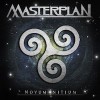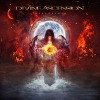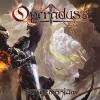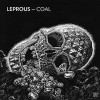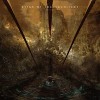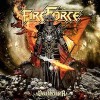Loading cart

Notes From The Shadows
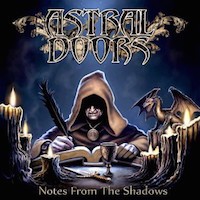
"If Astral Doors had an intention to re-revolutionize the metal and rock industry – flipping it on its ear and leaving mouths agape - well, it might be time for you to awaken from the fantasy. Astral Doors has and always will play badass rock ‘n’ metal that is so steeped in the historical realms of Rainbow and Ronnie James Dio that the material is stained a deep reddish brown. With that said, if you set those expectations to moniker of reality, “Notes from the Shadows” really is one of the most enjoyable metal albums you'll hear all year.
Although I do think vocalist Nils Patrik Johansson (Civil War) plays tribute to the great Ronnie James Dio, he is quite distinctive and is by no means the “replica” which many people have stamped him as. A much closer listen to his work (check Civil War, Wuthering Heights, and Lion’s Share for reference), reveals a much deeper variety in style than the stigma he has received from critics who lazily overgeneralize. I’m sure Johansson is likely flattered by the comparison (who wouldn’t be), but on top of drawing influences from a myriad of vocalist admired over the years, he has a style that is easily identifiable.
With that said, “Notes from the Shadows” presents a basic rock ‘n’ metal approach – a heavier Rainbow, if you will, so if this is not your bag…move on. For those that enjoy well written songs with bad ass Hammond style keyboards (from Joakim Rodberg) and absurdly infectious hooks (from Joachim Nordlund) all shadowed by Johansson’s bold vox, then this release will be met with insane enjoyment. “Last Temptation of Christ” and “Confessions” have all those typical Astral Doors hallmarks, including Johansson’s trademark “intro shouting” of the song title just shortly after the start. The best offerings include “Disciples of the Dragon Lord” (perhaps the heaviest on the album), “Walker the Stalker” and “Desert Nights” – all with more hooks than a Bassmaster tournament.
My personal favorite is “Shadowchaser,” which starts with a melody that is a near replica of “Man on the Silver Mountain” (which certainly won’t help with that Dio/Rainbow stigma). It quickly turns into one of the most accessible tracks on the album. “Die Alone” – which is a drum clinic of badassery from Johan Linstedt (and not for awe inspiring fills, just ability to inspire headbanging) – is another in a string of tracks that would make the Astral Doors best-of release.
Don't expect “Notes from the Shadows” to teach you a new way to rock. If that happens, you probably are not listening to Astral Doors. Consider this a lesson in how to properly rock through echos of the greats like Rainbow, Sabbath and, of course, Dio. If you enjoy the extension of a great legacy carried on through newer acts, you will find much to enjoy on this album. "Notes from the Shadows" is just a continuation of the great song writing and unique ability to force the body rock out which you should come to expect from Astral Doors." - Metal Underground

